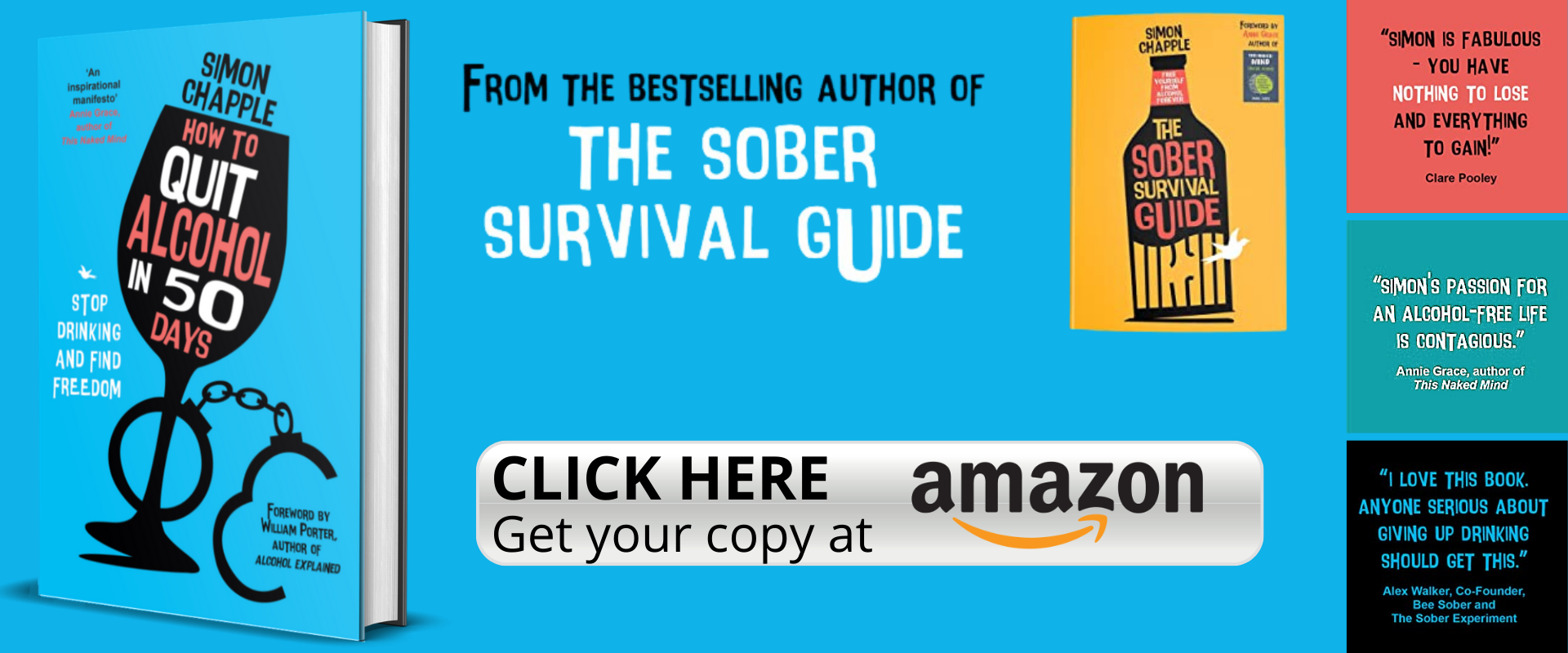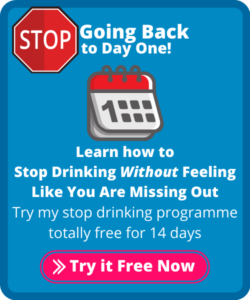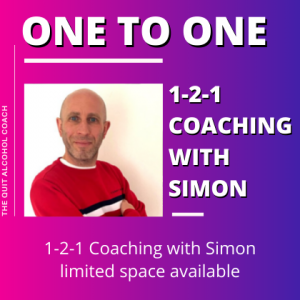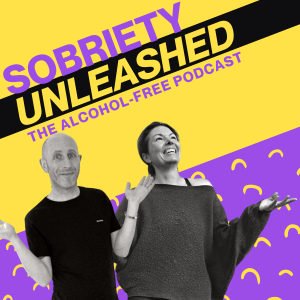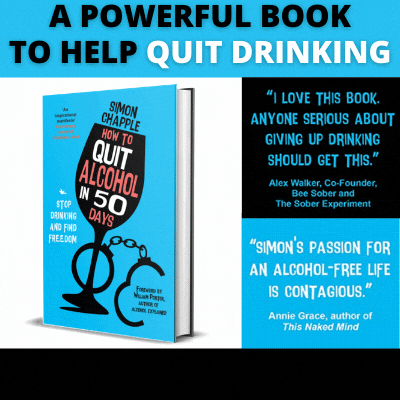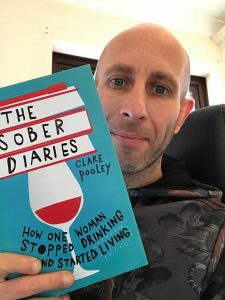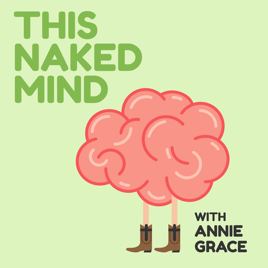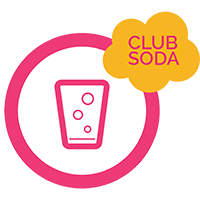Setting a Boundary for My Adult Child

LEAVE A COMMENT AT THE BOTTOM OF THE PAGE – I WOULD LOVE TO HEAR YOUR THOUGHTS
Setting a Boundary for My Adult Child
Lois Badey is a regular contributor to the Be Sober blog, writing book reviews and posts she provides a great perspective on sober-living and the best tips and tools to help anyone who wants to quit drinking.
Lois wrote the post below about the challenges she has faced with her adult daughter. It serves an important reminder that even after we quit alcohol, life can still serve up challenging situations. But the good news is that we are in a much calmer place and able to deal with them without the previous level of reactions that often arose while we were drinking.
Scroll down to read the full post.
Simon
Blog Post by Lois Badey
As parents of adult children, we are called on for support, love, guidance, and reality checks in ways that are sometimes at odds with our own self-growth and healing in sobriety. This is especially so when our adult children make poor choices or decide to distance themselves from us. It is not uncommon that adult children become fed up with a parent struggling with alcohol use disorder. Additionally, when adult children find their lives miserable and full of conflict, they lash out at one or both of their parents, inflicting a merciless spray of guilt and worthlessness. In both situations, the anger/guilt vortex can become quite painful for both parent and child. It triggers visceral stress, and if not dealt with emotionally, can lead to renewed drinking. That’s where boundaries can be protective shields.
Recommended Article – 20 Things I have learned after 4 months of not drinking alcohol
Now what if, like me, you’ve done everything you feel possible – including apologizing and offering to participate in counseling? What if your adult child remains estranged or verbally abusive? What if your adult child is unwilling to listen to you the way s/he expects you to respond? What if you can never say the right thing to your adult child and every phone call and every text message ends in expletives or hanging up? This is my situation with my daughter.
Fast forward through life. The years of our angry, hurtful calls and accusations have ripped us apart. But now on my sober journey, I’m finally getting out of the shame and blame game. Reading and gaining an understanding into both my childhood trauma and that of my adult children has been insightful. Three books that are reviewed on this blog are Loving What Is by Byron Katie, In the Realm of Hungry Ghosts by Gabor Mate, and Running on Empty by Jonice Webb. An additional book worth reading is Done with the Crying: Help and Healing for Mothers of Estranged Adult Children by Sheri McGregor.
I’m learning to cope with this grief by first, quitting drinking. I’m glad to be sober and able to think clearly and with self-honesty. I’m taking care of myself. Journaling, self-reflection, prayer, daily long walks, eating properly and being kind and nurturing to myself is critical. Emotional pain lies within the same area of the brain as physical pain. So, just as I would take care to heal following a surgical procedure or illness, I do the same to keep a holistic view.
I’ve decided that I no longer need to take phone calls that are filled with rage. While conversations begin in a friendly way, they frequently turn into vitriolic outbursts. That’s a trigger. I want to shield myself from thoughts about drinking to numb that hurt. Avoiding phone calls is one way to do that.
Thanks to Sheri McGregor RAGE to me now means Recognize, Admit, Gratitude, Express. I recognize that while I was a loving and engaged mother, my own trauma and drinking influenced so many aspects of my daughter’s self-esteem. I admit that I can only change myself and that I am helpless to change her. She has to want to move forward before any kind of healing can take place between us. I am grateful for the happy times we shared together, for memories of fun and laughter and joy at simply being mother and daughter. I express my feelings by journaling every day and by openly writing about these problems in the hope that someone else out there might benefit from my experiences.
Recently, I came across a tactic to disarm the emotional bombs that get hurled my way. I have found protection in communicating via text and not phone calls. Texting has its limitations, but it is a manageable way to keep open the door between me and my daughter. I love her. I want to know she’s safe and Covid-free.
But even with texting, I have to put in boundaries and a damage control. About once a month, a message comes to me, baited with landmines of sarcasm, disrespect, or criticism. Instead of feeding the fire, I now acknowledge her pain and at the same time set my boundaries. Here’s an example of a text that took place about two weeks following a very abusive phone call I regret answering:
Daughter: Lil reminder — your DAUGHTER needs you and loves you.
Me: heart emoticon. (I then wait for a response to make sure she’s attentive.)
Daughter: Mornin’
Me: I want to talk to you and spend time together. I can see you’re hurting and feeling unloved. Yelling at me and shaming me doesn’t heal or bring us closer. When we talk, it only ends up failing to accomplish anything positive. I feel I have tried to give you love and support, but obviously, it’s not been what you want or expect. The kind of anguish you have is deep rooted and painful. At this point, the only help I can offer is to encourage you to seek healing from a professional therapist. When you feel the time is right, I’m willing to join you. My hope is that you can face the things that frighten and anger you. I do love you. I hope one day you’ll see that.
Daughter: I get it…I feel bad. I’m sorry. I won’t bite you when I call.
She calls. I don’t answer. I’ll leave that conversation alone for now. The door to our hearts remains open. She’s not storming. I’m not hurting.
And then, with a 5-4-3-2-1, I restart my day, at peace within.
———————————————————————————————————–
MORE HELPFUL RESOURCES FOR STOPPING DRINKING ALCOHOL
———————————————————————————————————–
📖 GET MY NEW STOP DRINKING BOOK HERE – http://a-fwd.com/asin-uk=1529357586&asin-com=1529357586
⚠️ Subscribe to my YouTube channel – there are new stop drinking videos every Tuesday and Thursday.
Don’t miss another video – click below to Subscribe and also click on the Bell Icon to be notified about new videos.
Subscribe to my channel here: https://www.youtube.com/channel/UCkDiUhERjbdHN0kNXbD8UBQ/?sub_confirmation=1
💡 14 Days Free – Join my Stop Drinking Program:
https://www.joinbesober.com
🌎 Connect with me on a personal level – follow on Instagram:
https://www.instagram.com/besoberandquit
👥 Join my awesome free private Facebook community: https://www.facebook.com/groups/1960061840706240/
If you need some inspiration, check this out…
🎥❤️🔥 My Top 5 favourite videos to help you quit alcohol on your own – watch these now if you are curious about sobriety and becoming alcohol-free:
1 – How I quit alcohol after 40 years – https://www.youtube.com/watch?v=H0ydqjrN0AI
2 – Awesome tactic to stop alcohol cravings fast – https://www.youtube.com/watch?v=GedYoBZ_W2M&t
3 – 7 tips for the first week of sobriety – https://www.youtube.com/watch?v=Pq4x0vBEwMw&t
4 – Does alcohol cause depression and anxiety – https://www.youtube.com/watch?v=tkrQpZPHBls&t
5 – Weight loss and stopping drinking alcohol – https://www.youtube.com/watch?v=xyw9jM0kj5U&t
🌞 MUST WATCH – Check out my most viewed YouTube video – 7 Big Mistakes to Avoid in Sobriety – here https://www.youtube.com/watch?v=NtBxWrju_ng&t
📚 Get the first 10 chapters of my first book totally free here: https://besober.co.uk/2020/08/18/stop-drinking-books-by-simon-chapple-recommended-quit-alcohol-books/

